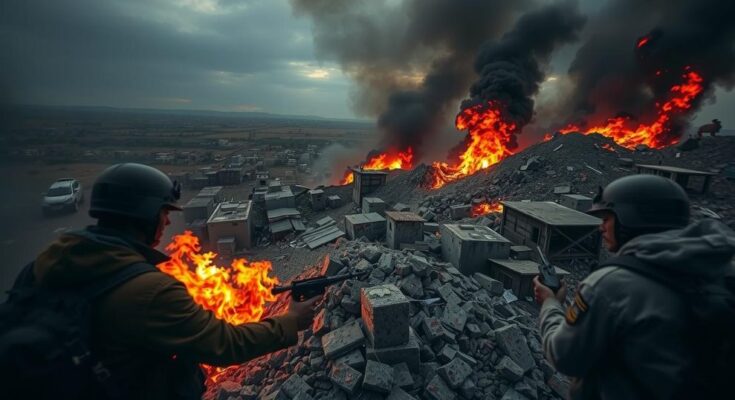Israel has enacted laws limiting UNRWA’s operations in Palestinian territories, jeopardizing vital services for millions of refugees. UNRWA Commissioner-General Philippe Lazzarini warns of severe humanitarian repercussions, including increased poverty, food insecurity, and loss of educational services. The legislation risks undermining Palestinian refugee rights and potentially destabilizing the region. International aid organizations are voicing alarm over the dire consequences of these measures amidst ongoing conflict.
The United Nations Relief and Works Agency for Palestine Refugees in the Near East (UNRWA) is set to face severe operational constraints following the recent passage of two laws by the Israeli Knesset, which restrict its ability to function in Israeli-occupied territories. These new regulations threaten essential services such as education and healthcare for millions of Palestinian refugees, significantly exacerbating the humanitarian crisis in Gaza, already strained by ongoing conflict and deprivation. UNRWA officials, including Commissioner-General Philippe Lazzarini, have expressed urgent concerns regarding the devastating impact these laws will have, describing them as a form of collective punishment against the Palestinian population. Without UNRWA, many fear the erosion of their refugee status and rights, particularly the right of return. International humanitarian organizations warn that the dismantling of UNRWA’s operations will not only result in dire consequences for the refugees but will also destabilize the broader region.
The situation concerning UNRWA is intricately linked to the political landscape of the Israeli-Palestinian conflict. Established in 1949, UNRWA was designed to provide assistance to Palestinian refugees following the Nakba, which marked the displacement of hundreds of thousands during the creation of the Israeli state. Despite UNRWA’s vital role in providing healthcare, education, and other essential services, it has faced persistent criticism and accusations from Israel, particularly regarding its alleged ties to militant activities. The recent Israeli legislation that restricts UNRWA’s operations raises questions about the future of Palestinian refugee rights and the international response to humanitarian crises in the Occupied Territories.
In conclusion, the recent Israeli legislation against UNRWA has sparked widespread concern regarding the humanitarian impact on Palestinian refugees, particularly in Gaza, where many are reliant on the agency’s services. The potential dissolution of UNRWA not only threatens the immediate well-being of millions but also raises significant questions about the future of Palestinian refugee rights and the ongoing Israeli-Palestinian conflict. The international community is now called upon to address the implications of these developments urgently.
Original Source: www.arabnews.com




